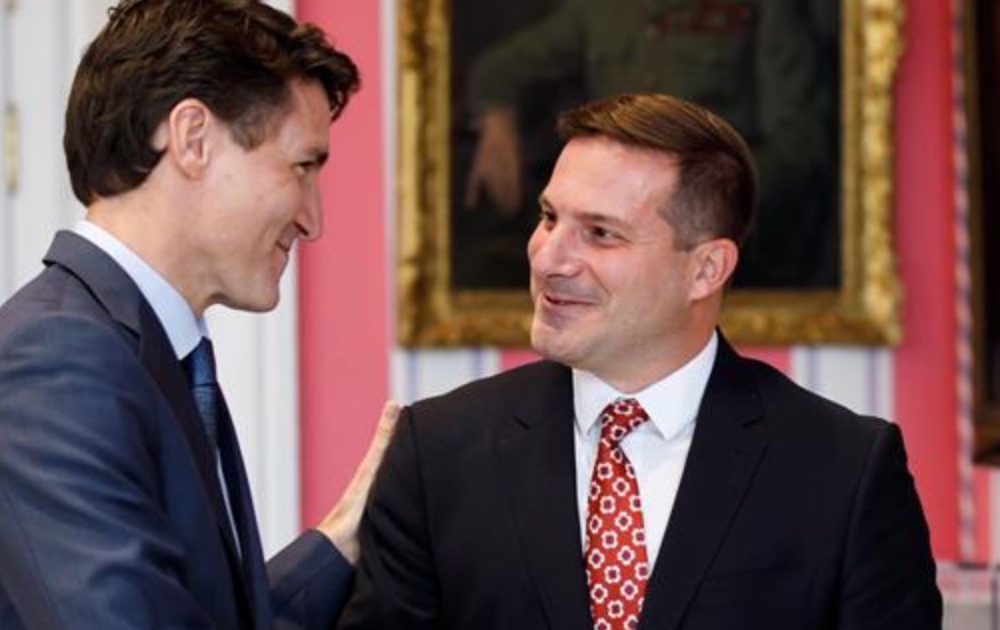
OTTAWA (LifeSiteNews) – At a time of increased international tensions considering the Chinese surveillance of North America via a balloon, Canadian Public Safety Minister Marco Mendicino said any laws passed that deal with targeting foreign spies must be “inclusive” and done in a “culturally sensitive” manner.
“To deal with threats to national security, we need agencies to be inclusive, diverse and culturally sensitive,” Mendicino said on Monday night, according to Blacklock’s Reporter.
Mendicino said the reason for “inclusive” intelligence agencies is that “Canadians can have trust and confidence that as we are taking actions to mitigate against threats to national security, they believe we are consistently going to act in the national interest.”
The comments by Mendicino were made during a House of Commons Special Committee on Canada-China Relations.
They also come at a time of increased tension with the Communist Chinese government after reports surfaced last week that a purported Chinese surveillance balloon flew unimpeded over parts of Canada, and then over the United States before it was taken out by the U.S. military.
Critics blasted the fact the balloon was allowed to fly impeded until it was more or less over the ocean.
Mendicino said Monday that “there is a real threat of foreign interference” in Canada but would not mention China by name.
For some time now, Canadian legislators have been trying to pass a law that would mandate a foreign agent registry.
Mendicino was asked about such a registry and said that it would need to be “diligent and thoughtful and inclusive when it comes to bringing all Canadians along.”
Last July, LifeSiteNews reported that an analysis conducted by a federal research unit showed the CCP may have tried to influence the outcome of the Canadian 2021 federal election, with other reports indicating the 2019 election may also have been subject to CCP meddling.
In light of this, Bill S-237, formally titled “An Act to Establish the Foreign Influence Registry and to amend the Criminal Code,” is currently in its second reading in the Senate.
The bill, introduced by Conservative Senator Leo Housakos, seeks to make it so all federal lobbyists who receive funds from a “foreign government, an individual or entity related to a foreign government” must disclose any payments as well as names of clients. Failure to comply would result in a $200,000 fine along with a two-year jail term.
Head of Canada’s spy agency says nation needs spy registry now more than ever
David Vigneault, director of the Canadian Security Intelligence Service (CSIS), said on Monday that a foreign agents registry would be useful in tracking spies.
“I do discuss these kinds of things with the Minister and sometimes our discussions get a little heated,” Vigneault said.
He was then asked by Bloc Québécois MP Denis Trudel if a registry would have helped Canada when dealing with foreign meddling.
Vigneault replied that such a registry would “absolutely, yes,” have helped, noting that it would have assisted in bringing “bring people out of the shadows.”
“For those who are trying to interfere, it would be more difficult for them to get their hands on resources and engage in this interference. Yes, it would help,” he added.
The potential interference by foreign agents has many Canadians concerned, especially considering Prime Minister Justin Trudeau’s past praise for China’s “basic dictatorship,” and his labeling of the dictatorial nation as his favorite country other than his own.
Late last year, this issue seemed to have come to a head, with Trudeau being angrily accused by Chinese President Xi Jinping of leaking details of a conversation between the pair about alleged Chinese interference in Canada’s elections to the media.
Last month, LifeSiteNews reported on a Department of Public Safety memo that showed certain high-profile Canadian politicians and other VIPs might be in the pay of “foreign states.”
Lending credibility to the memo, a former Canadian spy revealed last year that politicians being on the payroll of foreign governments, including China, is a real threat to the nation.
Michel Juneau-Katsuya, a former chief of the Asia-Pacific desk at CSIS, told the House of Commons ethics committee last August that they have had “to monitor parliamentarians” due to the threat of foreign interference.
There have also been reports of China operating clandestine “Police Stations” on Canadian soil.
LifeSiteNews reported late last year that a Spanish human rights organization had identified at least two additional Communist Chinese police “stations” operating in Canada, in addition to three already known.
The “stations” are said to target Chinese nationals living abroad, often employing illegal methods such as blackmail to ensure the targeted persons do their former country’s bidding.

